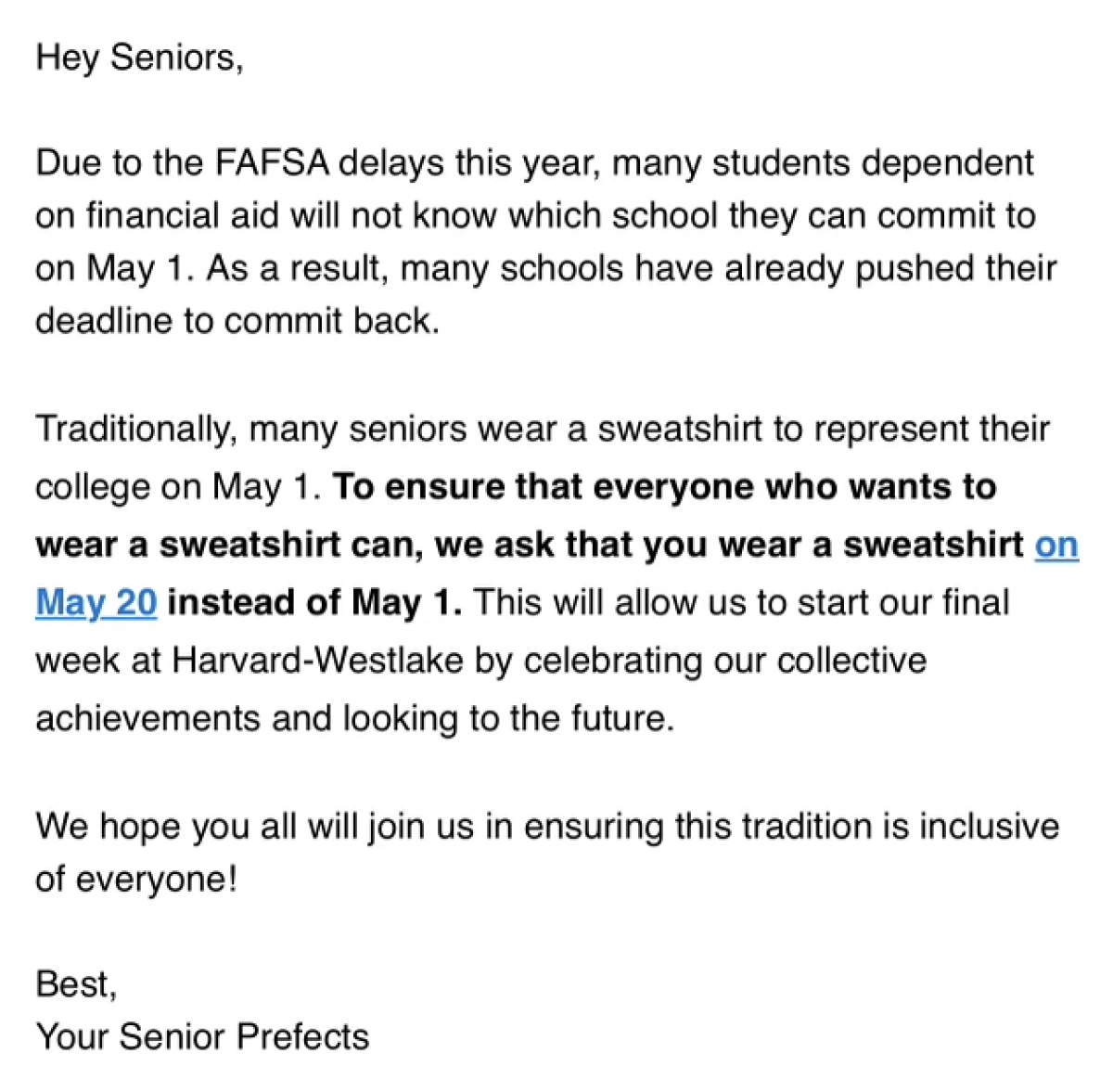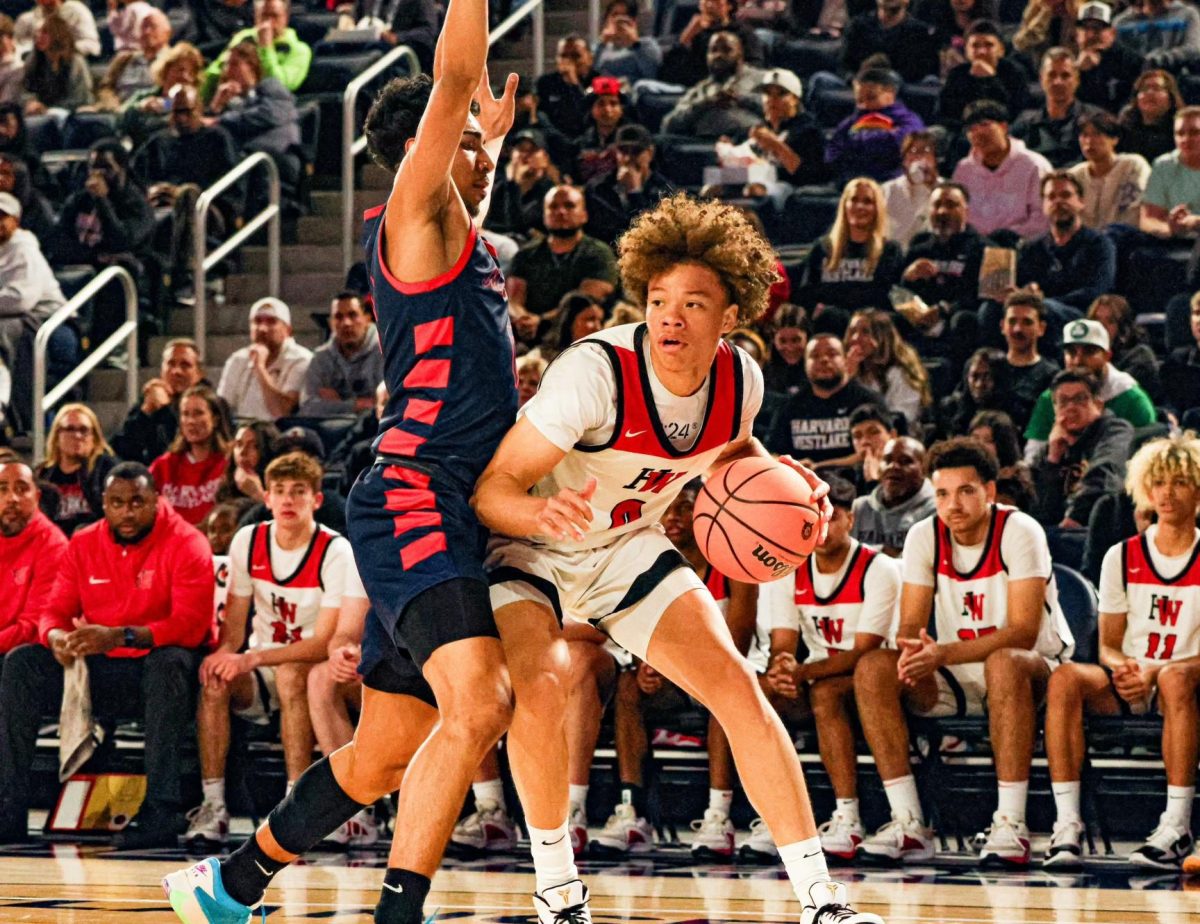President Rick Commons, Associate Head of School Liz Resnick and Head of Upper School Laura Ross approved the Faculty Academic Committee’s recommendation to limit the number of Advanced Placement courses upper school students can take and remove the GPA weighting for AP and honors courses.
The policy, which will go into effect for the current eighth grade students, will set a limit of two, three and four AP courses for sophomores, juniors and seniors, respectively. All classes, including AP and honors classes, will be graded on a four-point scale.
Commons said honors classes are not included in the policy because they are created by Harvard-Westlake teachers for Harvard-Westlake students.
“We decide some significant portion of our advanced curriculum,” Commons said. “Not the College Board in Princeton, New Jersey.”
Math teacher and head of the FAC Kent Nealis said the policy is consistent with the administration’s Vision for 2020 that states “happiness and balance will become primary values in the Harvard-Westlake culture and in shaping the experience of students.”
Rather than loading their schedules with AP and honors courses to enhance their college applications, students can now pursue classes they are genuinely interested in to construct their narratives as applicants, Nealis said.
“This is going to allow students to distinguish themselves in ways other than the number of APs,” Nealis said. “If that’s the only avenue that students have to distinguish themselves, then it’s more likely that they’re all going to look the same.”
To compensate for periods that might have been taken up by AP courses, Nealis said the development process for new courses will begin immediately.
All faculty members are encouraged to think of new classes and all ideas will come from individual teachers, Nealis said.
Because the policy does not affect any current upper school students, Commons said there is time to develop new courses and electives.
“We want to make sure that what this policy is is something better than what we currently have, not something that people feel like this really is changing of our academic excellence,” Commons said. “We want it to improve academic excellence, not cut back on it.”
Out of 265 surveyed in a Chronicle poll, 71 percent said they were not in favor of the AP limit policy.
Last year, Paul Leclerc ’18 and Marcus Leher ’18 gathered 169 signatures from students of the Class of 2018 for a petition that challenged the AP limit before it had been approved. Now that it will be implemented in the current eighth grade class, Leclerc said he is concerned how it will affect his sister, who is entering Harvard-Westlake as a seventh grader this year.
“If she wants to take AP classes and explore topics, she might not have the opportunity to do that,” Leclerc said. “Harvard-Westlake claims to prepare us for college and the real world. If they don’t teach students to manage their own time and workload by attempting to remove it from their environment, then is Harvard-Westlake really fulfilling what they set out to do?”
Leclerc said he was also concerned that without the five-point scale for honors and AP classes, students might feel inclined to take lower level classes to assure an A and opt not to take more challenging courses.
Upper School Deans Department Head Beth Slattery said class rigor is still more important in the college process than a student’s GPA because most colleges use their own formulas to calculate a student’s GPA. She said the deans will communicate with colleges about the new policy, and Commons said the school will use a modified GPA weighting system for colleges where the school’s calculations do matter.
As a former reader of Harvard-Westlake applications at Columbia University, Ross said this policy will help students set themselves apart from other applicants in the college process.
“From a college admissions lens, the most compelling kids are the ones who are involved in things beyond themselves,” Ross said. “It’s a really reductive thing to say excellence is only academics. In order to be a truly excellent school, you have to have an environment that thinks about bigger things.”
Ross also said the policy will help balance students’ schedules and get them to think about something greater than themselves.
Entering her first year at the Upper School, Kate Konvitz ’20 said the policy eases her fears about Harvard-Westlake’s competitive environment.
“A lot of times, I find that students take honors or AP classes solely because they want to impress their friends, parents or colleges,” Konvitz said. “By limiting the number of AP classes, students will have more down time to explore subjects or hobbies that truly interest them.”
Resnick said she hopes the policy relieves students of some stress and allows them to get more sleep.
“This limit promotes happiness and balance, requires students to think carefully about where to spend their AP currency and allows them to both pursue courses of genuine interest and dabble in areas where they may have interests,” Resnick said.







































